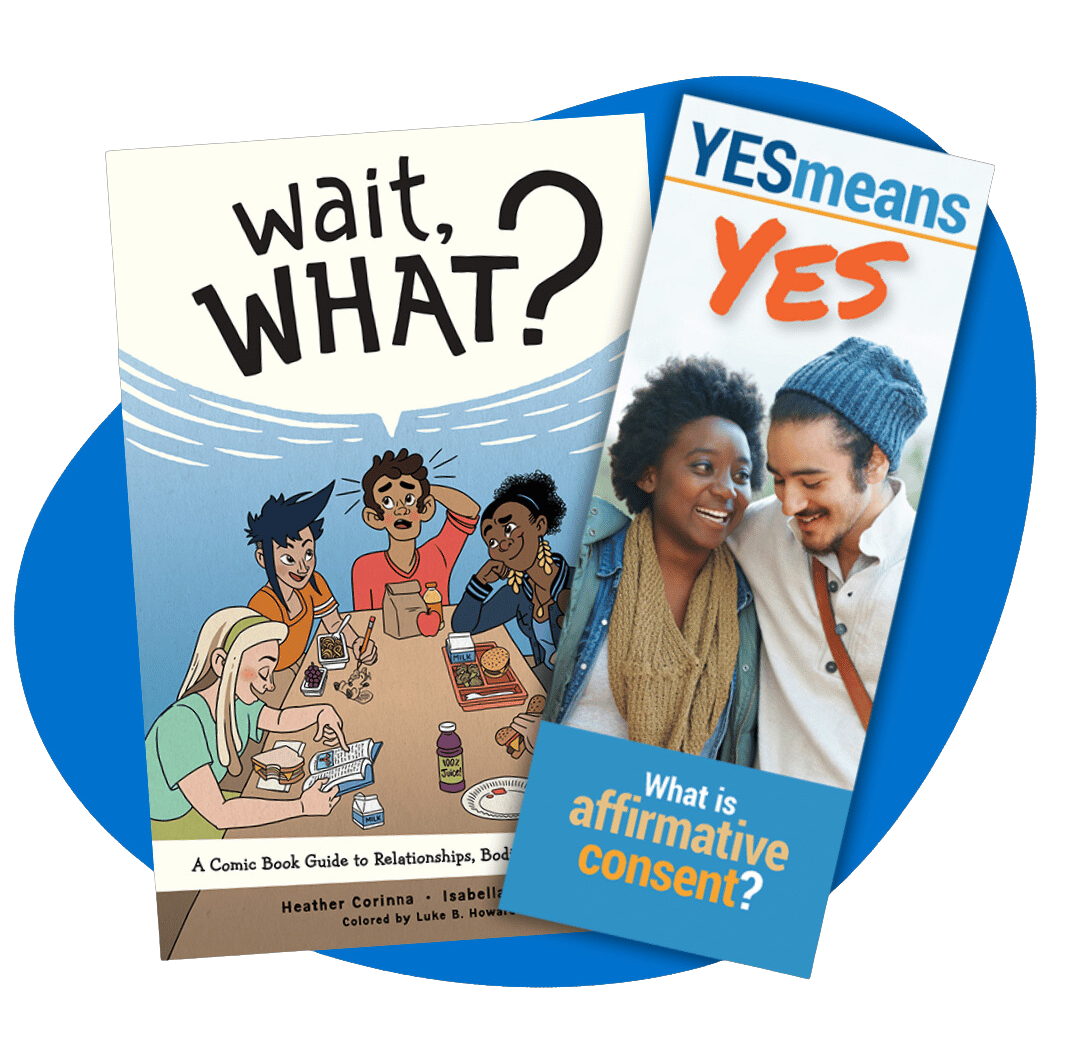How to Talk with Teens About Over-the-Counter Birth Control Pills
By Kelly Gainor, MEd, Training Manager, ETR, Li Lock, PhD, MEd, Research Associate III, ETR, Lauren Ranalli, MPH, Director of Marketing and Communications, ETR | September 21, 2023
With over-the-counter (OTC) birth control pills now becoming a reality for people across the United States, adolescents will soon have greater access to contraception- a huge step forward in reducing unplanned pregnancies and managing ongoing health conditions!
But even with this expanded access, there are still significant roles that educators, healthcare professionals, parents, and other trusted adults can play in helping young people navigate their sexual health choices.
Addressing Questions About OTC Birth Control
With OTC birth control pills being very new, there is still a lot for people to learn about what is available and how to access it. Here are a few answers to possible questions that young people may have:
1.) What OTC birth control pill options are available? Currently, Opill is the only over-the-counter birth control pill approved by the FDA. Many other birth control options are available for teens through a healthcare provider, so it’s important to speak with someone about the options that are best for you.
2.) How old do I have to be to get it? There are no age restrictions on purchasing Opill. You have the right to purchase it and should not be asked for any type of identification to verify your age.
3.) Where can I find it and how much does it cost? In the coming months, Opill should be available through pharmacies. It’s possible that it may also be made available in other locations, such as convenience stores, grocery stores, and online, in the future. Right now, the price for Opill is not known, but many organizations are advocating for it to be low-cost so that most people can afford it.
4.) Is Opill the same as emergency contraception? No, Opill is NOT emergency contraception. It is a pill taken each day to proactively prevent pregnancy, whereas emergency contraception is taken up to five days after sex to prevent pregnancy.
Reminders for Teens About Birth Control Options
As trusted adults who work with adolescents, it’s important that we provide additional information to all young people, regardless of their gender identity or sexual orientation, who are making decisions about their sexual health. Some essential topics to discuss include:
Birth Control Effectiveness
All birth control methods need to be used properly and as intended to maximize their effectiveness. For oral contraceptives, this means taking the pill at the same time every day. Encourage young people to have a plan in place, set reminders, or put alerts on their phones, to remember to take their pill at the same time every day.
STI Prevention
Birth control pills (whether received over-the-counter or prescribed by a healthcare provider) do not prevent sexually transmitted infections (STIs). Using condoms and other barriers or choosing not to have sex are the most effective ways to prevent STIs.
Talking to Healthcare Professionals
Even with birth control pills now available without a prescription, young people should still be encouraged to talk to healthcare providers before they begin taking Opill. Healthcare providers can offer guidance, assess individual health risks, discuss alternative contraception options, and address any concerns about healthy and safe relationships.
Consent and Communication
Talk to teens about open and honest communication with their partner(s) about birth control choices and sexual activity. This can be a great opportunity to emphasize the need for mutual consent and respect in all sexual encounters.
Download our OTC Pill Tip Sheet
Resources to Help Young People Make Decisions about Birth Control
ETR has over 40 years of experience as educators, trainers, and researchers in the field of adolescent sexual health. Here are some resources that you can use in your classroom, clinic, or community setting.
-
Sexual Health Curriculum- view the evidence-based and evidence-informed sexual health programs offered through ETR.
-
Educator Training- check out available trainings for educators and other youth-serving professionals on implementing sexual health education programs.
-
Consent Resources- share this “Yes Means Yes: A Mini-Health Lesson on Affirmative Consent” video with your students or patients and view other resources on giving and receiving consent.
-
Inclusive Environments- download our free “Contraception Knows No Gender” poster and other resources to create affirming and inclusive environments for LGBTQ+ young people.
Looking for something else? Contact us at customerservice@etr.org
Kelly Gainor, MEd (she/her/hers) is the Training Manager for ETR, focusing on the development and implementation of virtual training of educators.
Li Lock, PhD, MEd (they/them/theirs) is a Research Associate at ETR and has worked as a sexuality researcher, program evaluator, and educator for the past decade.
Lauren Ranalli, MPH (she/her/hers) is the Director of Marketing and Communications at ETR and has a background in public health and adolescent health services.





